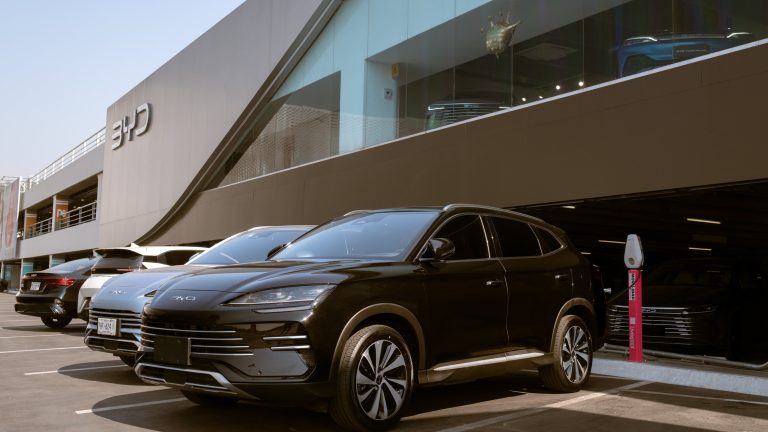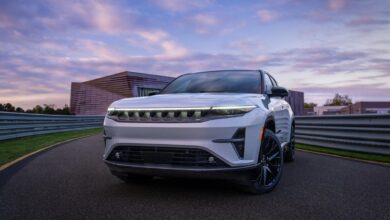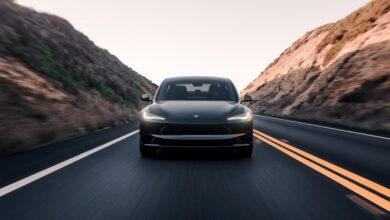Vemo partners with BYD to build more charging stations in Mexico

In April, Karla González bought her first electric car, a BYDBYDBYD Auto is a Chinese carmaker that became the world’s leading EV manufacturer in 2023, competing with Tesla for market share and global attention.READ MORE Dolphin. She was drawn to how quiet it was when she drove it — a little oasis in noisy Mexico City.
But there was a downside: Charging her car outside a dealership was a hassle. While she waited to have her BYD charger installed at home, González drove to a public charging station in Manacar, a nearby shopping mall. She was surprised to find it stocked chargers for cars from Tesla and other American EV brands — but not her Chinese-made BYD.
“Every charging station should have all chargers that fit the different EVs there are in the country,” she told Rest of World.
González is one of the hundreds of BYD users in Mexico who regularly struggle with the lack of GBT chargers, which are used in most Chinese EVs. Less than 2% of the 3,708 public charging stations in the country are fit for Chinese cars, according to a Rest of World estimate based on data from two apps that help locate public chargers, as well as from two national EV associations. Now, Vemo, a young Mexican company, is trying to change this by installing more charging stations that are compatible with Chinese EVs, in partnership with BYD. This could become the second-largest EV charging network in the country after the one owned by Tesla.
“Tesla, some years ago, invested heavily in putting its chargers in Mexico’s main connecting roads, in shopping malls, etc.,” Gerardo Gómez Gálvez, Mexico country manager for auto-industry consultancy J.D. Power, told Rest of World. Vemo is now “building its charger strategy with support from third-party developers who bring the chargers,” he said.
Founded in 2021, Vemo runs an EV ride-hailing fleet, helps companies add EVs to their fleets, offers EV financing, and runs a network of public charging stations. It currently has nearly 500 EV chargers installed in Mexico, which can be found using the company’s Watts app. Less than 12% of Vemo’s EV chargers are compatible with Chinese cars, according to information available on Watts.
Vemo made headlines in 2022 when it announced it would purchase 1,000 BYD D1 models to grow its ride-hailing fleet, which already included EVs from other brands and is available for Uber users in Mexico City. Vemo’s ride-hailing fleet is currently the largest operation of BYD cars in Mexico.
Last April, Vemo and BYD announced they would work together to bring more GBT chargers to Mexico. Their goal is to double the total size of their current charging network, made up of almost 500 chargers, before 2025. Although they did not specify how many GBT chargers they plan to add, the companies said the expansion aims to benefit owners of BYD EVs.
Vemo’s partnership with BYD came after its co-founders, Roberto Rocha and Germán Losada, visited BYD’s Shenzhen headquarters on a business trip. They realized that the affordable vehicles “made sense for a market like Mexico,” Miguel Peña Ríos, head of marketing and press relations at Vemo, told Rest of World.
Vemo has set up six large charging stations across Mexico City so far, where its ride-hailing drivers charge tens of BYD cars simultaneously. Some of those chargers are available for individual EV owners to use for a fee. Other EV infrastructure competitors, like the Dominican Republic-based Evergo, only have 11 GBT chargers in Mexico, according to data from Evergo’s charger location app. Aside from a handful of chargers installed across its four showrooms in Mexico City and other BYD dealerships nationwide, BYD does not have its own network of chargers in the country.
“If you buy a cheap adapter, you can compromise your charging system and your car.”
Hybrid and electric cars have become increasingly popular in Mexico: Their sales grew by more than 40% between 2022 and 2023, and now represent 5.4% of all car sales nationwide. According to research by J.D. Power, about 20 Chinese automakers have entered the country in the past four years, including BYD. Together, they now have a roughly 10% market share.
But nearly half the current EV charging infrastructure in Mexico has been developed by Tesla, Francisco Cabeza, who heads the Mexican Association for Electric Vehicle Promotion, told Rest of World. The rest of the country’s public charging infrastructure — mostly Type 1 or Type 2 chargers used for EVs from BMW, Nissan, or Volvo — is run by independent EV infrastructure companies, including Vemo. These companies often partner with individual carmakers to run their chargers.
To navigate the shortage of BYD-compatible chargers, users often rely on adapters that can be purchased online, José Fernández, who sells BYD-related products on Facebook, told Rest of World. But using them comes at a risk. “If you buy a cheap adapter, you can compromise your charging system and your car,” Fernández said.

Adapters, especially those of lower quality that are used at home, could overheat, malfunction, or potentially harm entire electrical installations, according to Fernández. Their price hovers around 1,500 pesos (about $89), but some chargers can be as cheap as 300 pesos ($18). Aside from sellers like Fernández, GBT adapters can easily be found on sites like MercadoLibre or AliExpress.
BYD’s partnership with Vemo is likely to boost the carmaker’s sales, which have fallen short of the company’s projections. It aimed to sell 10,000 cars in 2023, and between 20,000 and 30,000 in 2024 — estimates suggest the company sold just 1,123 cars last year.
BYD did not respond to an interview request from Rest of World.
Vemo and BYD are “making the contribution to increase the new-energy vehicle penetration rates in Mexico and in Latin America,” Ray Zhou, BYD’s president in Mexico, said in a 2023 documentary about Vemo called Cities in Therapy.
“Vemo is the most ideal and trustworthy company we can find in the market,” Zhou had said.




